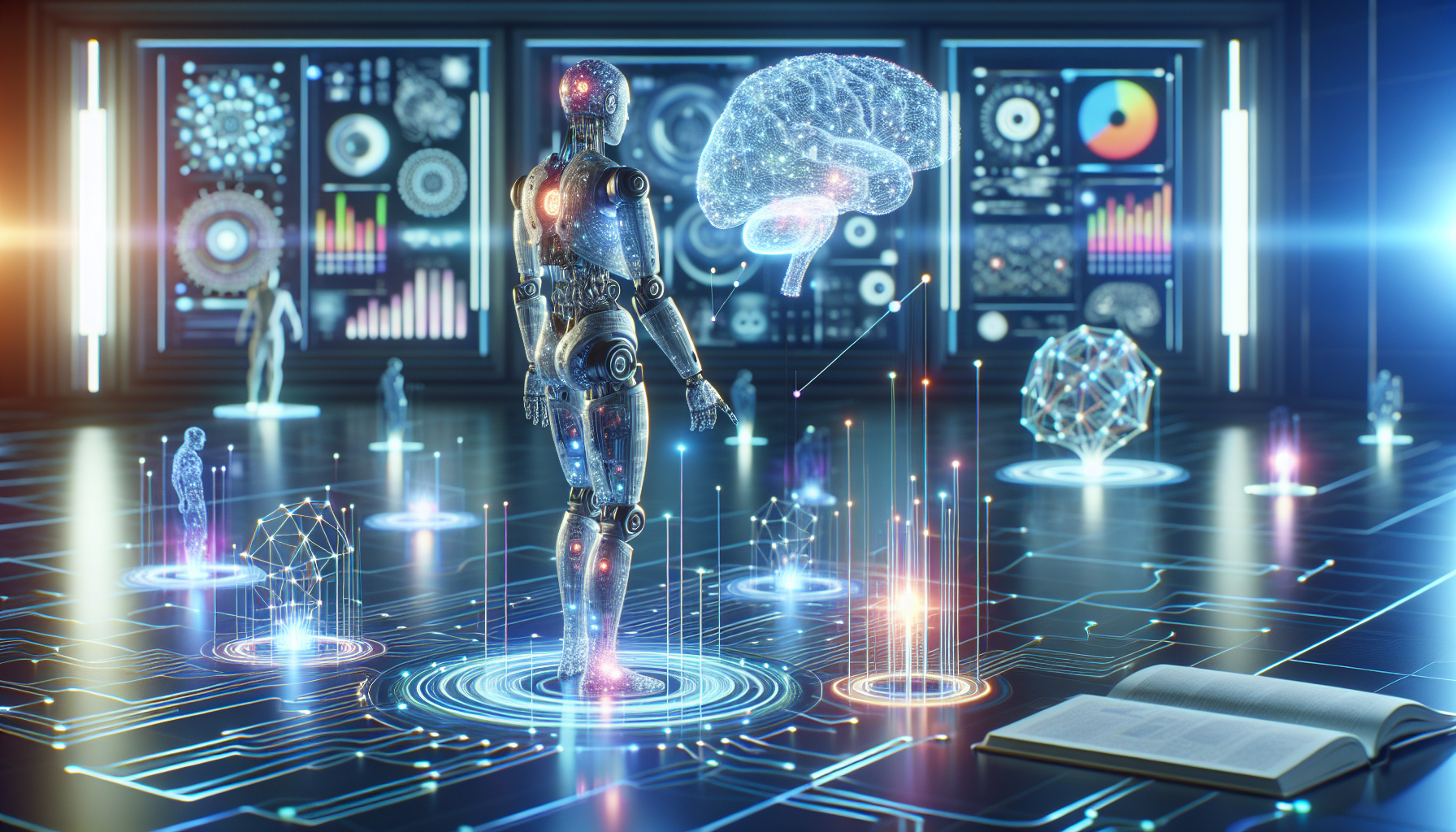
AI and Aging: How Robots Became Grandma's New Best Friend (And Why That’s Not So Scary)
June 20, 2025
There’s a rumor going around that robots are plotting to take over the world, starting with your grandmother’s knitting club. But before we start envisioning a dystopian future where AI overlords are insisting on prune juice breaks, let's take a deep breath, put down the tinfoil hats, and explore the truth about how artificial intelligence is actually supporting our aging population. Spoiler alert: it's more heartwarming than horrifying.
First, let’s debunk the myth that AI is all about replacing human interaction. Contrary to popular belief, Grandma isn’t playing chess with a robot because she’s lonely—she’s doing it because the robot hasn’t figured out how to cheat yet. AI companions are actually designed to enhance social connections, not replace them. They can remind seniors to call their grandkids, and if the AI is particularly advanced, it might even suggest those awkward conversation starters like, "When are you getting married?"
Then there’s the fear that AI is turning our elders into tech zombies, shuffling around with VR headsets instead of walkers. Sure, the image of Grandpa wandering the virtual streets of Paris in his pajamas is amusing, but it’s not the full story. AI is empowering seniors to engage with technology in ways that foster independence and mental agility. Smart home devices can adjust lighting and temperature, and voice-activated assistants can help find misplaced items, like reading glasses—although, ironically, they’re usually perched right on Grandpa’s nose.
Let’s address the misconception that AI is a one-size-fits-all solution. If you've ever tried to explain to a senior why the "Reply All" button is not their friend, you know that technology isn’t always intuitive. AI developers are aware of this and are crafting personalized solutions. These systems learn individual preferences, whether it’s a reminder to take daily medication or a gentle nudge to water the petunias. In a way, AI becomes a sort of kindly butler, minus the snooty accent.
Another myth floating around is that AI is just too darn expensive for the average retiree to afford. While it’s true that some tech gadgets come with a price tag that could make a pensioner clutch their pearls, AI solutions are becoming more accessible. Community programs are helping seniors get acquainted with technology, often with the added bonus of free cookies at workshops. Let’s face it, free cookies have been known to break down even the greatest technological resistance.
Now, we can’t ignore the concern that AI might lead to a loss of privacy. It’s a valid point—no one wants to feel like they’re living in a reality show called "Keeping Up with the Kulaks." However, AI systems are designed with privacy and security in mind, ensuring that only the necessary data is used. Plus, your grandmother’s secret lasagna recipe is safe; even AI knows better than to mess with a family classic.
On the topic of healthcare, some worry that AI will replace doctors with robots that have all the bedside manner of a toaster. In reality, AI is complementing healthcare professionals by providing tools that help monitor vital signs or alert caregivers to potential health issues. So, while your AI assistant might suggest a healthier diet, it won’t be the one prodding you with a stethoscope—it’s more of a digital second opinion.
Lastly, let’s tackle the whimsical notion that AI will eventually lead to senior citizens forming alliances with robots to overthrow humanity. While that might make for a blockbuster movie, the real story is one of collaboration. AI is enabling seniors to live richer, more connected lives, offering them new ways to engage with the world around them.
So, as you sip your tea and ponder whether you’re ready to let a robot vacuum your floors, consider this: AI isn’t here to replace the warmth of human connection or the wisdom of age—it’s here to support it. Will there be hiccups along the way? Absolutely. But isn’t that true of all great friendships?
In the end, perhaps the question isn’t whether AI will take over, but rather how it will continue to redefine what it means to age gracefully. And who knows? Maybe one day, “robot” will be just another word for “family member.”


